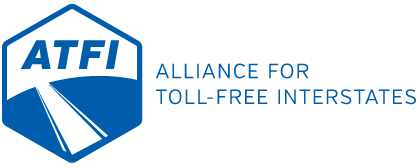TheTrucker.com
Voters in Missouri will decide on Aug. 5 whether or not to raise their sales tax for 10 years, which, in turn, will mean a yes or no to tolls on the state’s existing roadways.
The proposed three-quarters-of-a-cent sales tax would be tacked onto the current 4.225 percent rate. The jump, which is projected to bring in $480 million annually to the Transportation Safety and Job Creation Fund and $54 million for local governments in Missouri, could only be used for transportation purposes.
If passed, it would be another step toward keeping existing roadways toll-free, the mission of the national Alliance For Toll-Free Interstates.
“The concerns of the alliance specifically are about tolling existing interstates … Not policy against tolling by any form,” said ATFI spokesman Julian Walker, emphasizing that understanding the effects of tolling is a must for states. “Tolling existing highways when you’re not doing anything to improve and augment to make them different than they are now” is, as the alliance has said before, a form of double taxation.
The ATFI, made up of individuals, businesses and organizations, aims to educate the general public, lawmakers and media outlets on the negative impacts of tolling on existing roadways, according to its website, tollfreeinterstates.com.
Tom Crawford, president and CEO of the Missouri Trucking Association, said they supported a similar bill two years ago that was filibustered in the last week of the legislative session.
“Oh absolutely,” Crawford said of the association supporting this latest effort. “We worked hard to secure passage of this legislation … at our June meeting, our board of directors unanimously supported it and reached out to our membership to turn out a positive vote for financial support for the campaign.”
In Missouri, Crawford said a public vote must take place for a project of more than 80 million dollars if it involves raising taxes. Crawford said it’s very congested on popular roadways in the state, such as I-70 and I-44, and that the proposed sales tax increase would allow construction to begin to reduce congestion.
“If it doesn’t pass, quite honestly, it will take a herculean effort to gather the funding” to reduce traffic on those roadways, Crawford said. The association also supports the refusal to allow tolls in the state while the sales tax is raised.
“I think obviously tolls are in many respects a last-ditch effort to try and put new roads in most of the proposals in Missouri to convert existing highways to tolling; it’s a non-starter to the trucking industry,” Crawford said. “Tolling is not the most efficient way to build infrastructure in this state.”
Missouri is just one example of a state that has been given the opportunity to experiment with tolls on existing roadways and turned it down.
In 1998, North Carolina, Missouri and Virginia were all given a unique opportunity under the federal Interstate System Reconstruction and Rehabilitation Pilot Program to put tolls on one existing interstate in their states to raise funds for repairing interstate corridors. None of the states have taken the bait.
Most recently, Virginia’s transportation bill passed in February 2013 that repealed the gas tax and put in place a 3.5 percent wholesale gas tax. It also forbids tolling on I-95.
In 1956, the federal government decided against tolling interstates, but rather funding transportation through a federal fuel tax. As the Highway Trust Fund continues to shrink, Congress is scrambling for new ways for states to fund transportation projects.
In April, President Barack Obama unveiled the administration’s Grow America Act, which in part would mean lifting the 1956 ban on tolling existing interstates. It would also allow states to divert toll money to projects other than transportation and require that all tolling be electronic, according to the ATFI.
Walker said the act would open the “floodgates” for states with negative consequences on everyone from businesses to the everyday consumer and driver. For trucking, tolling increases the cost of doing business and producing goods which in turn means more expense for all involved in the chain of commerce. Walker explained the plight of a shipping company headquartered at one end of the U.S. that needs to transport its goods to the other side of the country. A trucking company must send one or multiple trucks throughout the country to deliver the goods. If half the states they travel through have new tolls popping up, the trucking company’s budget takes a hit.
“That cost filters through everything that company does,” Walker said. “It ultimately effects the bottom-line.”
On the trucker’s end, putting up a toll might delay him or her from stopping for a meal or any reason on that stretch, causing local economies along the way to suffer, Walker added.
Another residual effect from tolling on existing roads is a concept called diversion, Walker said. This means some drivers will avoid paying the toll, using side roads instead, which would create more wear-and-tear on infrastructure and potentially create heavier traffic in an area that is not equipped to handle it. Walker pointed to areas that have medical, police and fire emergency traffic.
“It slows response times down,” Walker said. “There could be serious consequences from that.”
While the federal government grapples with how to sustain the Highway Trust Fund, the ATFI is standing along with trucking interest groups who oppose tolling existing roadways.
“The Alliance For Toll-Free Interstates is unanimous in the belief that the president’s tolling plan is bad policy for workers, families and businesses, and opposes its inclusion in any transportation funding plan that might emerge from Congress,” Walker said.

